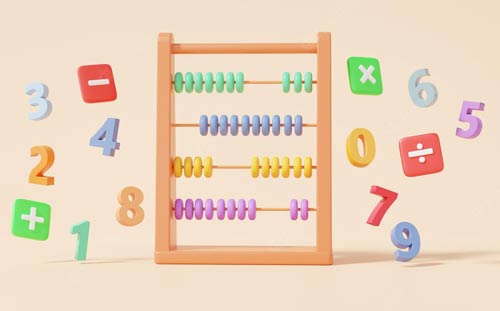arithmetic

Arithmetic is a branch of mathematics concerned with doing calculations with numbers using addition, subtraction, multiplication, and division. The name comes from the Greek arithmos for "number." Until the 16th century arithmetic was viewed as the study of all the properties and relations of all numbers; in modern times, the term usually denotes the study of the positive real numbers and zero under the operations of addition, subtraction, multiplication, and division. Arithmetic can therefore be viewed as merely a special case of algebra, although it is important in considerations of the history of mathematics.
The procedures of arithmetic were put on a formal axiomatic basis (see axiom) by Guiseppe Peano in the late 19th century. Using certain postulates, including that there is a unique natural number, 1, it is possible to give formal definition of the set of natural numbers and the arithmetical operations. Multiplication can be thought of as repeated addition: subtraction and division are the inverse operations of addition and multiplication. The operations can be extended to negative, rational, and irrational numbers.
Fundamental theorem of arithmetic
The fundamental theorem of arithmetic is that every positive integer greater than 1 is a prime number or can be expressed as a unique product of primes and powers of primes.


